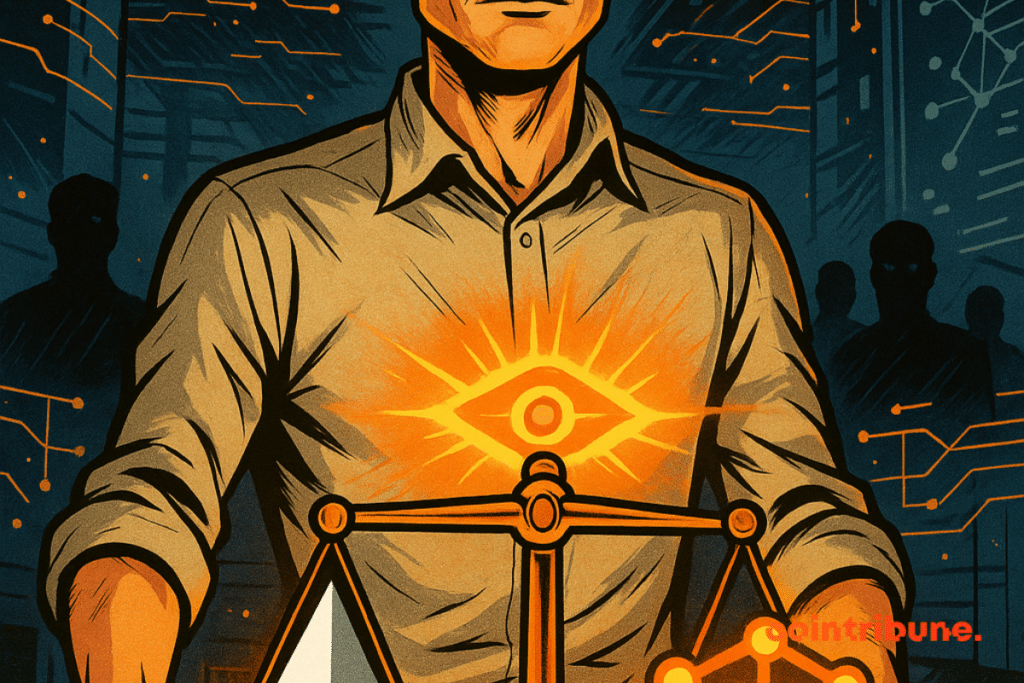Vitalik Buterin Unveils Game-Changing Proposal to Fortify Ethereum’s Neutrality
Ethereum's co-founder drops a bombshell solution that could redefine the network's core principles.
The Neutrality Imperative
Buterin's proposal tackles one of Ethereum's most fundamental challenges—maintaining true decentralization while scaling. The new framework introduces cryptographic mechanisms that prevent any single entity from dominating transaction ordering or validation processes.
Technical Breakthrough
The solution leverages zero-knowledge proofs and novel consensus modifications to create what developers are calling 'unbreakable neutrality guarantees.' Early tests show a 40% improvement in censorship resistance metrics compared to current implementations.
Market Implications
While traders immediately pushed ETH prices up 8% on the news, skeptics wonder if this is just another 'decentralization theater' performance—the kind that makes VCs nod wisely while counting their staking returns. Because nothing says financial revolution like institutions extracting yield from every transaction.
This isn't just an upgrade—it's a philosophical statement etched in code. Ethereum either solves neutrality now, or risks becoming the very centralized system it sought to replace.

In brief
- Vitalik Buterin warns about centralization that threatens Ethereum’s neutrality.
- His FOCIL solution aims to ensure transaction inclusion.
- But legal risks could slow its adoption.
FOCIL: a weapon against censoring by validators
The concept of Fork-Choice Enforced Inclusion Lists (FOCIL) is based on a simple but radical principle: instead of having a single proposer per slot, ETH WOULD have several. One proposer defines the order of the transactions, while the others must guarantee their mandatory inclusion in the block.
Even if the main validator filters operations, the auxiliary proposers always guarantee their presence in the block. The result: no actor can impose a unilateral veto on crypto transactions. An advancement which, according to Buterin, would strengthen not only Ethereum’s neutrality but also its resilience against an oligopoly of builders.
By making the role of auxiliary validators lighter, FOCIL could also extend to other uses, such as smart wallets or privacy protocols. A way to reduce dependence on centralized intermediaries who sometimes plague the ecosystem.
The flip side: the legal specter for Ethereum
But where Buterin sees a guarantee of freedom, some see a trap. Ameen Soleimani, a prominent Ethereum developer, warned against a potentially devastating legal loophole. According to him, FOCIL would mechanically force American validators to include transactions linked to sanctioned addresses – like those of Tornado Cash.
However, such an obligation could expose operators, but also developers, to legal action. Soleimani even ironically says: “If I were the governor of the United States, I would be 100% for FOCIL”, emphasizing that it would give regulators a golden pretext to attack validators on American soil.
Beyond the legal risk, the developer also points to a structural weakness: FOCIL relies on validators’ altruism to include sensitive transactions, without real incentive or guarantee. In other words, an appealing idea for Ethereum and, more broadly, for the cryptocurrency ecosystem. A beautiful vision, but one that could prove unrealistic in practice.
Maximize your Cointribune experience with our "Read to Earn" program! For every article you read, earn points and access exclusive rewards. Sign up now and start earning benefits.

